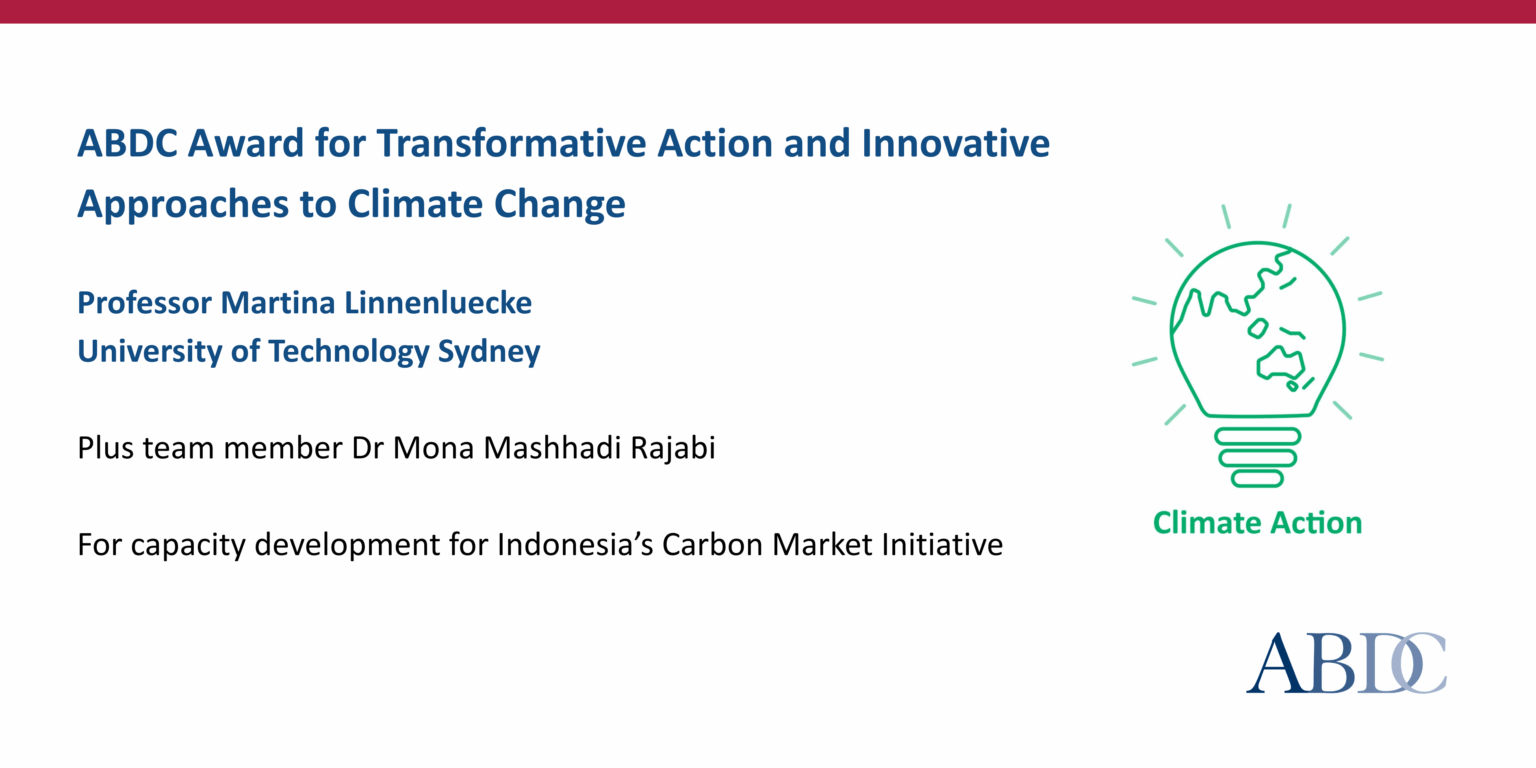2025 Network Awards – Transformative Action and Innovative Approaches to Climate Change

What the judges said
The panel recognises this initiative as an excellent example of engagement within a regional context. The UTS Climate Risk and Resilience Centre teamed up with the Centre of Accounting and Development at Universitas Indonesia to strengthen the development of a carbon market in Indonesia. The model and approach developed by Professor Linnenluecke and her team is scalable with the potential to assist other jurisdictions seeking to build carbon market capacity.
The initiative
The Capacity Development for Indonesia’s Carbon Market initiative is a collaborative research translation project led by UTS’s Centre for Climate Risk and Resilience (CCRR), in partnership with Universitas Indonesia and funded by the Australia–Indonesia Institute. It addresses a critical climate challenge: the lack of institutional and technical capacity in Indonesia to implement effective carbon pricing mechanisms, including a national carbon market and carbon tax system.
Through a series of targeted workshops, stakeholder consultations, and an international seminar, the project translated Australian expertise in carbon accounting and market mechanisms into contextually relevant learning tools for Indonesian regulators, academics, and industry participants. The initiative focused on practical capacity-building, using structured evaluation tools, tailored learning modules, and participatory formats to ensure knowledge transfer and policy relevance.
The project exemplifies innovation in design and delivery, integrating academic research with real-world application. It has led to measurable outcomes including improved regulatory readiness, curriculum development, and joint grant applications. A planned Memorandum of Understanding between UTS and Universitas Indonesia will formalise ongoing collaboration.
This initiative supports Indonesia’s climate goals under its Enhanced NDC and FOLU Net Sink 2030 agenda, and contributes to global climate governance by offering a scalable model for carbon market development. It demonstrates how business schools can lead transformative climate action through international collaboration, research translation, and capacity-building.
Measurable outcomes
The initiative delivered clear and measurable outcomes across climate, policy, education, and international collaboration:
- Climate Impact: Structured pre- and post-tests showed significant increases in understanding of carbon pricing, trading, and taxation — up to 70% improvement in some areas.
- Policy Impact: Participants from government agencies reported applying insights to internal frameworks and regulatory planning, contributing to Indonesia’s carbon market infrastructure and national carbon tax rollout.
- Academic Integration: Workshop materials and evaluation tools have been incorporated into postgraduate teaching at UTS and Universitas Indonesia, supporting long-term capacity-building.
- Stakeholder Reach: Over 130 participants attended the workshops and seminar, including representatives from government, industry, academia, and civil society.
- International Collaboration: The initiative led to joint curriculum development and a planned Memorandum of Understanding between UTS and UI, formalising ongoing bilateral engagement.
- Funding and Recognition: The project was competitively funded by DFAT and has led to new grant applications focused on climate disclosure and carbon markets.
- Non-Traditional Outputs: A video explainer was produced to support dissemination, and academic articles are in preparation for peer-reviewed journals and public media.
- End-User Satisfaction: Workshop ratings averaged 4.15 for implementation and 4.25 for materials (on a 5-point scale), with participants requesting further technical modules and case studies.